Uncovering the Best Dgraph Alternatives for Your Graph Database Needs
Dgraph is a powerful, low-latency, high-throughput, and horizontally scalable distributed graph database, lauded for its ACID transactions. While Dgraph offers robust capabilities for managing interconnected data, various reasons might lead you to explore other options. Perhaps you're looking for different feature sets, specific platform compatibility, a particular licensing model, or simply want to compare performance and community support. This article dives into the top Dgraph alternative options available today, helping you find the perfect fit for your next project.
Top Dgraph Alternatives
Whether you're prioritizing open-source flexibility, advanced analytical capabilities, or seamless integration with existing tools, the following alternatives offer compelling reasons to consider them over Dgraph. Let's explore the leading contenders in the graph database landscape.

neo4j
Neo4j stands out as a high-performance graph engine with the features of a mature and robust database. It offers an object-oriented approach for developers and is a strong Dgraph alternative for those seeking a well-established and feature-rich solution. Neo4j is available as Free and Open Source, supporting Mac, Windows, and Linux, and its core feature is its powerful graph capabilities.

ArangoDB
ArangoDB is an open-source NoSQL solution that provides a flexible data model for documents, graphs, and key-values, making it a versatile Dgraph alternative. It's designed for building high-performance applications and is available for Free and Open Source use on Mac, Windows, and Linux, boasting features like graph database and general database functionalities.

Orient DB
Orient DB is a Document-Graph database that supports SQL and Native Queries, asynchronous commands, and more. As a free and Open Source Dgraph alternative, it's available on Mac, Windows, and Linux, and supports Java, PHP, and Python, making it a good choice for developers working with these languages who need both database and graph features.
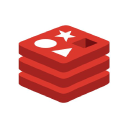
RedisGraph
RedisGraph is a property graph database module for Redis, notable for being the first graph database to use linear algebra on sparse adjacency matrices for graph implementation. This makes it a high-performance Dgraph alternative, particularly for those already familiar with Redis. It's Free and Open Source, available on Mac and Linux, and offers strong database and graph database features.
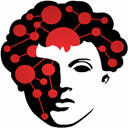
Titan Database
Titan is a scalable graph database optimized for storing and querying massive graphs, distributed across multiple machines. As a Free and Open Source Dgraph alternative, it's available on Mac, Windows, and Linux, offering features relevant to Business Intelligence, Developer Tools, and both Graph and Relational database functionalities, making it suitable for large-scale data challenges.
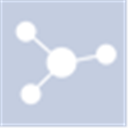
Flockdb
FlockDB is a distributed graph database for storing adjacency lists, designed to support a high rate of add/update/remove operations and potentially complex set operations. It's a Free and Open Source Dgraph alternative for Linux users, providing robust database and graph database features, ideal for applications requiring fast and frequent graph modifications.
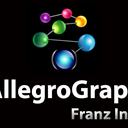
AllegroGraph
AllegroGraph is a high-performance, persistent graph database that supports SPARQL, RDFS++, and Prolog reasoning from numerous client applications. As a commercial Dgraph alternative, it's available on Mac, Windows, and Linux, focusing on powerful graph database features and advanced reasoning capabilities for complex semantic data.
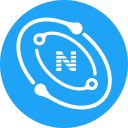
nebula graph
Nebula Graph is a distributed, fast open-source graph database featuring horizontal scalability and high availability. It serves as a compelling Free and Open Source Dgraph alternative, available on Linux, Self-Hosted, and as a Software as a Service (SaaS) solution, focusing on robust graph database features for large-scale, real-time graph processing.
Choosing the right graph database depends heavily on your specific project requirements, team expertise, and existing infrastructure. Each Dgraph alternative presented here offers unique strengths in terms of features, performance, licensing, and community support. We encourage you to explore these options further, conduct your own benchmarks, and select the solution that best aligns with your long-term data strategy.